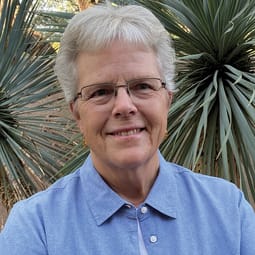
Jeanne E. Pemberton
Regents Professor, John & Helen Schaefer Professor of Chemistry, BIO5 Faculty Member, Department of Chemistry & Biochemistry, University of Arizona, USA
False

Regents Professor, John & Helen Schaefer Professor of Chemistry, BIO5 Faculty Member, Department of Chemistry & Biochemistry, University of Arizona, USA
Most exciting recent instrumental innovation? The most exciting recent innovation in analytical instrumentation is the development of the various forms of vibrational microscopy and imaging with spatial resolution at the nanoscale (TERS, IR s-SNOM, PTIR, PiFM). These tools will revolutionize our molecular understanding of chemical, biological and materials systems.
Most exciting trend today? The increasing use of cheminformatics, an umbrella term that I define to include chemometrics, machine learning, and artificial intelligence methods.
Most memorable advice? Many years ago, my undergraduate research adviser once told me when lauding the breadth of areas that Al Bard’s research had impacted in electroanalytical chemistry (even by that time): “It’s relatively easy to be a specialist; it’s far more difficult to be a generalist.” My take-away from that was: learn as much as you can about as many things as you can and seek to become a generalist. In retrospect, I can clearly see the impact that this advice had in guiding many of my choices throughout my career!
Receive the latest pathologist news, personalities, education, and career development – weekly to your inbox.

False
False
False